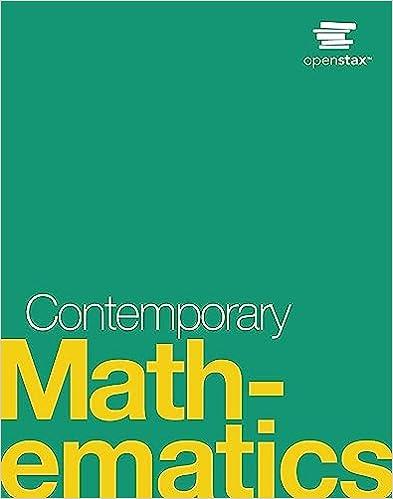If (sim q), then (p) and if (r), then (sim q). Assume each pair of statements represents
Question:
If \(\sim q\), then \(p\) and if \(r\), then \(\sim q\).
Assume each pair of statements represents true premises in a logical argument. Based on these premises, state a valid conclusion that is consistent with the form of the argument.
Fantastic news! We've Found the answer you've been seeking!
Step by Step Answer:
Related Book For 

Question Posted:





